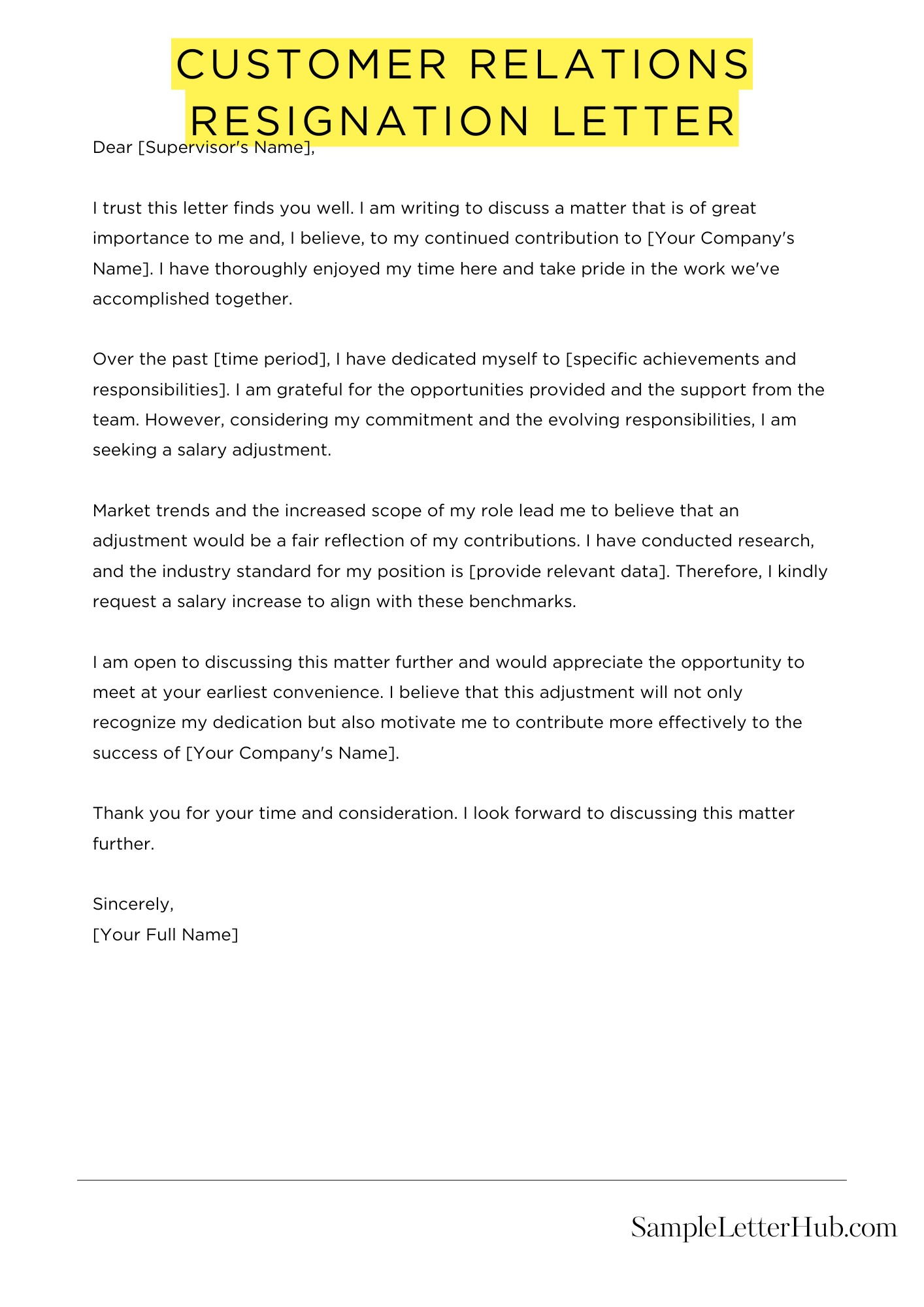Writing a contractor resignation letter can be a daunting task, but it’s an important step in leaving a job on good terms. In this article, we’ll share an example of a contractor resignation letter that you can use as inspiration.
When writing your resignation letter, it’s important to be polite and humble. Remember that you’re leaving a job, not burning bridges. Be clear and concise in your explanation of why you’re leaving, and be sure to thank your employer for the opportunity to work with them.
Below, we’ve included a template for a contractor resignation letter that you can use as a starting point. Feel free to adapt it to fit your own circumstances.
Contractor Resignation Letter
Dear [Recipient Name],
Please accept this letter as formal notification that I will be resigning from my position as a Contractor with [Company Name], effective [Last Date of Employment].
I have enjoyed my time with the company and appreciate the opportunities I have been given. I wish you and [Company Name] all the best in the future.
Thank you for the support and guidance I have received during my tenure.
Sincerely,
[Your Signature]
Short Contractor Resignation Letter Sample
Please accept this letter as formal notification that I am resigning from my position as Contractor at [Company Name]. My last day of employment will be [Your Last Day]. Thank you for the opportunity to grow and learn during my time here. I wish you and the company continued success. I am happy to assist in the transition process to ensure a smooth handover of my responsibilities.
I wish you all the best with your contractor resignation letter.
When it’s time to say farewell, expressing your gratitude and best wishes can make the transition smoother:

How to Write a Contractor Resignation Letter
1. Start with a Professional Salutation
Begin your letter with a formal salutation that includes the name of the person you’re addressing, such as “Dear [Hiring Manager’s Name].” If you don’t know the name of the hiring manager, you can use a more general salutation like “To whom it may concern.”
2. State Your Intention to Resign
In the first paragraph, clearly state your intention to resign from your position as a contractor. Be direct and to the point, such as “I am writing to inform you of my decision to resign from my position as a contractor with [Company Name], effective [Your Last Date of Employment].”
3. Express Gratitude and Appreciation
Take a moment to express your gratitude for the opportunity to work with the company. Mention any specific projects or experiences that you’re particularly grateful for. For example, you could say, “I have enjoyed my time at [Company Name] and am grateful for the opportunity to have worked on such a challenging and rewarding project.”
4. Offer to Help with the Transition
If possible, offer to help with the transition during your notice period. This could involve training your replacement or providing documentation on your work. For example, you could say, “I am happy to assist in any way possible to ensure a smooth transition during my notice period.”
5. End with a Professional Closing
End your letter with a professional closing, such as “Sincerely,” or “Best regards.” You can also include your signature and contact information. For example, you could say, “Sincerely, [Your Name].
Contractor Resignation Letter: Top 6 FAQs Answered
When it comes to ending a contractor relationship, a well-crafted resignation letter is crucial. Here are the six most frequently asked questions and their answers to guide you through the process:
1. What should I include in my contractor resignation letter?
Your resignation letter should include your name, contact information, the date you’re writing, the name of the company you’re resigning from, and the date your resignation will take effect. You should also express your gratitude for the opportunity to work with the company and briefly state your reason for leaving.
2. How much notice should I give?
The amount of notice you should give depends on the terms of your contract. If your contract doesn’t specify a notice period, it’s generally considered polite to give at least two weeks’ notice.
3. Should I offer to help with the transition?
Yes, it’s a good idea to offer to help with the transition in any way you can. This could include training your replacement or providing documentation on your work.
4. What if I’m leaving on bad terms?
Even if you’re leaving on bad terms, it’s important to keep your resignation letter professional and respectful. Avoid making any negative comments about the company or your colleagues.
5. Should I submit my resignation letter in person or by email?
If possible, it’s best to submit your resignation letter in person. This gives you the opportunity to meet with your manager and discuss your reasons for leaving. However, if you’re unable to meet in person, you can submit your resignation letter by email.
6. What should I do after I submit my resignation letter?
After you submit your resignation letter, you should continue to perform your job duties to the best of your ability. You should also cooperate with the company during the transition period.
Before making the decision to resign from your job, it’s essential to consider the legal aspects:
Understanding your emotions after quitting your job is important. Explore why you might be feeling sad:
Related
- Resignation letter sample
- Forced resignation letter
- Resignation letter due to going abroad
- Resignation letter due to marriage
- Resignation letter due to other opportunity
- Resignation letter due to mistake

